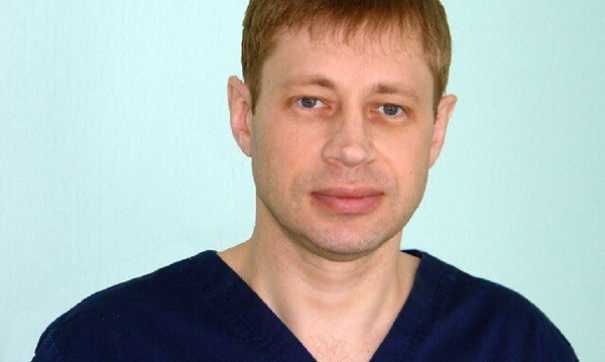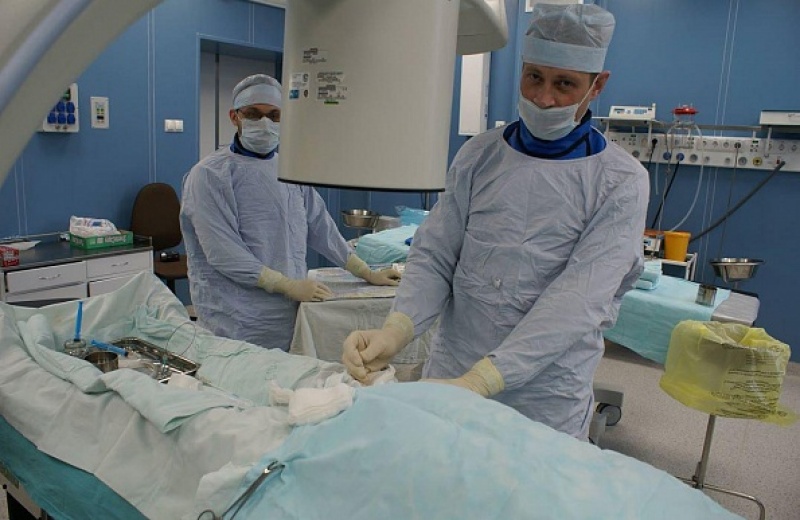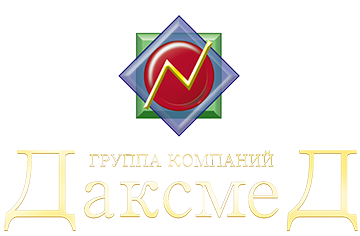“Oncology is not the end. It’s like a chronic disease you can live with”
Doctors of the Tyumen “Medical City” managed to help the patient with the fourth stage of cancer of the left maxillary sinus. The patient had ulcerous changes on the face, the upper jaw was destroyed, and the maxillary sinus was filled with a tumor of seven centimeters. Thanks to modern methods of surgery, doctors managed to arrest the growth of the tumor, stabilize the patient’s condition, and eliminate visible manifestations of the disease. The fact that the fourth degree of cancer is not a verdict, and the question of how to deal with cancer at a neglected stage and to communicate with such patients will be discussed in the FederalPress interview with the head of the department of X-ray surgical methods of diagnosis and treatment of the “Medical City” Lavrentiy Dyakov.
 How unique is the case of successful treatment of a patient with the fourth stage of cancer?
How unique is the case of successful treatment of a patient with the fourth stage of cancer?
- This patient is not unique here. We treat such people almost daily, on an ongoing basis. Patients with severe, malignant neoplasms are constantly treated. The technique of X-ray endovascular surgery, thanks to which we managed to defeat the disease, has been used by us since the beginning of last year.
What does this technology consist in?
- We enter the blood stream. Usually through the femoral artery, but sometimes through the arm, the radial artery or the artery of the shoulder - depending on the area, to which we need to bring the instrument, the system of tubes of different diameters and lengths, and special conductors. The microcatheter is placed directly into the vessels that supply blood to the neoplasm or the area, in which it is located. For instance, the tongue. Cancer of the tongue is not uncommon. We can inject the drug right there.
What does this give us? First, the drug enters the blood stream, which “feeds” the neoplasm. A concentration of the drug is created that cannot be achieved in any other way - an extremely high dose of the drug is entered into the tumor. In addition, a systemic effect on the rest of the body is minimal. This type of chemotherapy is tolerated much better.
We see positive results on metastases as well. The drug is released in the same way as the metastasis process occurs. We had a patient with cancer of the tongue, with the tumor transition to the oropharynx. It was impossible to operate. So, we treated him. We combined intraarterial therapy and radiotherapy. The tumor was gone completely together with metastases.
We often perform radiotherapy in parallel. It can be an independent treatment, but when we combine them, they enhance each other’s action. This yields good results.
Today, oncology without x-ray endovascular surgery is not oncology. This type of treatment should be in every oncological dispensary.
As we can see, the process is fairly painless, better than surgery. Am I right?
- This is surgery, too – high-tech and minimally invasive surgery. But this is a more sparing technique. And it leaves no traces on the body. A person feels comfortable enough. But, you see, it cannot be offered to everyone, like any other treatment.
But still, is it treatment or only the elimination of symptoms, their delay?
-This is treatment. However, with some patients we can only achieve a palatial effect, eliminate pain, bleeding. To someone, we removed the primary lesion completely, but some distant manifestations still remain. And there are patients, whom we cured from the disease completely. And it is possible even at the fourth stage.
In what cases this method can’t be used?
- There are diseases that are not affected by chemotherapy, we won’t help there. There are cases when there is no vascular bed - it was closed because of the tumor development. But there will be no effect in this case as well.
We are talking only about one small part of our entire work. There are other ways of treatment. We can say that this technique is very successful. But we need more time to better evaluate its results.
 In general, how difficult is it to make a decision about the method of treatment?
In general, how difficult is it to make a decision about the method of treatment?
- We have patients with the first or second stage of cancer. They are few. They are treated instantly. But most patients who come to us are usually hard to be provided with any kind of surgical care. Often there is no choice.
- Sometimes it happens that after a successful treatment the disease comes back again. How hard is it to tell a person about this?
- Any treatment implies a difficult contact between the patient and the doctor. It is necessary to submit information so that a person does not feel like a trunk of a sawn tree. Of course, it is hard, how can it be easy? The main thing is not to deprive people of hope. We need to try to find such treatment options that would fuel this hope, give results.
How do you talk to people who first come to you with the fourth stage?
- A patient who comes to me has already passed an oncologist, a psychologist, he knows his problem. I’m not the first with whom he communicates. In any case, I think, first of all, we must talk honestly. It is important that he is not left face-to-face with the problem. Of course, we try not to worry about the patient as if it were our own problem. We empathize, but in such a way that it does not interfere with the work. If we worry for everyone, we'll be run down. We'll get a heart attack and will be unable to help anyone. But there is no cold attitude, when the patient is left on his own, and the doctor is left alone.
The work must be honest. We always support the patient, but never let the dust into his eyes. The results will not always be as we expected.
Do you have to choose words? Or have you already understood exactly what you should say for years of practice?
- The format of communication develops over time. You try to smile and communicate kindly. The main thing is a kind and good atmosphere. It is important that the patient does not shut himself up. As a rule, surgery is performed without general anesthesia. It is wrong not to contact the person.
Of course, there are patients who behave aggressively. Sometimes the disease itself behaves this way - when the tumor is in the brain or in the frontal lobes. A thing happened to me when I was still working in Novosibirsk. I was obtaining the patient’s consent for the surgery. When signing it, he looked at me and said: “I’m gonna put the pen into your eye now”. I answered him: “But how will I operate you with one eye only? It will be so uncomfortable”.
So, the main thing in communicating with patients is calmness. Am I right?
-Yes. Because a person also has fear. It is necessary that people feel comfortable with you, so that they know that you are confident in yourself. Then there are no problems.
How do you think people should treat a disease like cancer?
- It must be properly understood. And proper treatment options must be found. A correct understanding is in the right attitude of the society. A stereotyped view is widespread that cancer is a verdict. But hypertension may also be considered as a verdict, for that matter.
It is necessary to treat cancer diseases differently - you can live with them. The task is not to defeat them, but to adapt to them people who have become ill with them. To make it so that society does not turn away from them. Oncological diseases are among the three of those that most often lead us to withdrawal from life. Life ends up, sooner or later. Oncology is just one of the variants of how this may happen. But it’s not just a click, it’s a process. If we can not eliminate it, then we can slow it down. There are all the possibilities for that.
In any case, it is important that a person develops awareness: oncology is not the end. It's like a chronic disease you can live with.
